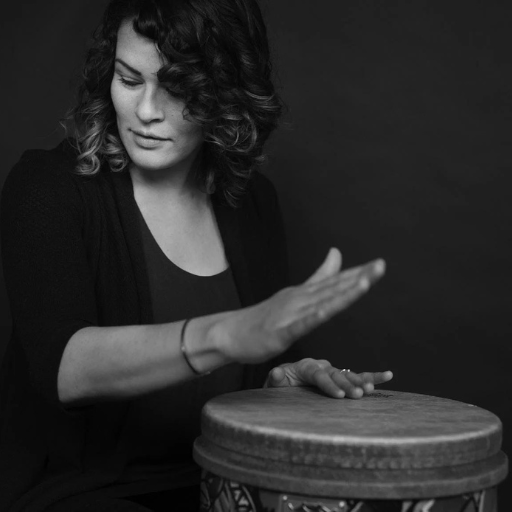Music therapy was developed during World War II to help veterans deal with Post Traumatic Stress Disorder (PTSD) and related emotional issues. But, according to Kate Beever, Music Therapist and Owner of Maine Music and Health, “They realized it was also helping with motor skills, such as walking and arm mobility for people who had been injured.”
The research also supported “the use of music to impact all kinds of physical behaviors,” Kate says, “as well as emotions, thinking skills, attention span, memory, and speech.”
Kate, who has a master’s degree in music psychotherapy, explains her field as “…a balance between talk therapy and music making, so you learn both of those techniques and how to put them together.”
“I studied classical percussion,” she explains, “but as a music therapist, I carry a guitar and a keyboard. I play a lot of instruments so I can add emotional quality to the music.”
“I also have a ton of percussion instruments in my office,” she adds, “because most of the people I work with are not musicians and wouldn’t be comfortable if I brought out a flute or something. Drums and percussion are a great way to get people playing. Most people can carry a basic beat or rhythm, and it’s really fun.”
“Music therapists work in all different settings,” she explains. “We’re not teaching or performing music. Instead, we use music to help people improve their speaking, movement, feelings, and how they express themselves. All sorts of different skill sets can be helped through music.”
While Kate doesn’t specialize in recovery (some music therapists do), she acknowledges that “addiction is very common, and many of my clients have been dealing with that. That’s where the emotional and social impact of music therapy can help.”
She continues: “One of the things I’ve found to be helpful is family or group therapy. Groups of people will come and work on controlling their emotions and communicating with each other. We work on some of those social skills that can make us feel more confident. It helps to reduce some of the shame and guilt attached to the things we’re dealing with.”
Kate goes on to explain, “You can address a lot of skills that people are working on through drums. It kind of creates this buffer,” she says. “So instead of saying ‘Okay, today we’re going to talk about the stressors that cause us to relapse or cause us to start drinking again,’ we can say, ‘Let’s go around and express your stressors on your drums today, and then we’ll talk about it.’”
“Music therapy doesn’t replace other therapies or medication,” Kate stresses, “but it’s a great addition for some things that unfortunately our healthcare system doesn’t have time to help, such as social skills and building community,” which are key elements of recovery.
“We’re facilitating space for people to feel comfortable expressing themselves,” she says of her work. “And I try to get people laughing a lot because music therapy is good for adding a little positivity to the routine.””



